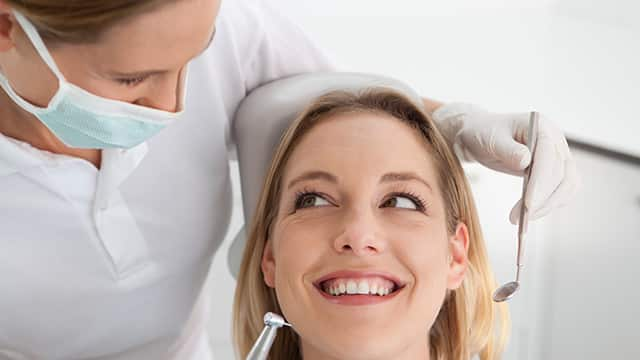What Causes Burps?
Burping is your body’s way of getting rid of excess air. According to The Mayo Clinic, you can swallow excess air in several ways: eating and drinking too fast, talking while you eat, chewing gum, sucking on hard candies, drinking carbonated beverages, and smoking. Wearing loose dentures can also cause you to swallow air and burp—be sure to check with your oral care provider to ensure your dentures fit correctly.
Sulfur Burps
The “rotten egg” smell of sulfur burps is hydrogen sulfide gas, which can come from something you ate, or a gut condition or infection. It’s helpful to understand where burps come from by first understanding where the gas originates. Beyond swallowing air, according to the National Institute of Diabetes and Digestive and Kidney Diseases, gas can enter your digestive tract when bacteria in your large intestine break down certain undigested foods. Foods with sulfur-containing compounds, like broccoli, brussels sprouts, and whole grains and milk products, can cause an uptick in sulfur-smelling burps and flatulence.
A condition called gastroesophageal reflux (GERD) causes bad-smelling gases in your stomach to come out of your mouth. Partially digested food in your stomach flows up the esophagus, creating discomfort and unpleasant burps. It can also cause heartburn or acid indigestion. If you think you may be experiencing GERD, contact your physician to discuss your symptoms and treatment.
Giardia is a waterborne infection that could also be responsible for your smelly burps. According to The Mayo Clinic, Giardia is an intestinal infection caused by a parasite that can enter your body through poor sanitation or contaminated water. While sulfur burps and diarrhea don’t go hand-in-hand, this is a case when it might. That’s because these microscopic parasites set up in your small intestine and become infections. They can cause diarrhea, poor appetite and weight loss, and foul-smelling burps. While it’s a temporary infection and should go away in a few weeks, it’s serious—and if you're suffering these symptoms, you should see your physician right away to get proper medications and treatment. There’s no vaccine to prevent giardia, but you can take measures to reduce your risk, especially when swimming in lakes, rivers, or swimming pools. Wash your hands, avoid swallowing water when swimming, and drink bottled water.
How to Get Rid of Sulfur Burps
While it would be hard to get rid of sulfur burps instantly, there are simple home remedies and habits you can try. Typically, treating sulfur burps at home involves making some dietary changes. Cutting back on sulfur-containing vegetables may also help with smelly burps, but the effect varies from person to person. Experiment by removing one food at a time from your diet for two or three days to see if you can identify what triggers the odorous burps.
Chewing more slowly and avoiding gum and hard candies can also help reduce the air you swallow. As mentioned earlier, if your dentures are loose, contact your oral care provider as this may be causing you to inhale more air with chewing. Lastly, you can also help keep your breath fresh by rinsing with a mouthwash after meals.
Medical Treatment for Sulfur Burps
If odorous burps interfere with your enjoyment of life or you're worried they may be a sign of something serious, see your physician. He or she can diagnose the cause of the problem and prescribe medications that can help relieve gas, bloating, and other symptoms you might be experiencing.
Rotten egg burps can happen at the worst moment, but you can help reduce attacks by changing what and how you eat. Check with your doctor in case they're a sign of something more serious, and don't let odorous gas from your stomach spoil your day or your breath.
Oral Care Center articles are reviewed by an oral health medical professional. This information is for educational purposes only. This content is not intended to be a substitute for professional medical advice, diagnosis or treatment. Always seek the advice of your dentist, physician or other qualified healthcare provider.
ORAL HEALTH QUIZ
What's behind your smile?
Take our Oral Health assessment to get the most from your oral care routine
ORAL HEALTH QUIZ
What's behind your smile?
Take our Oral Health assessment to get the most from your oral care routine














